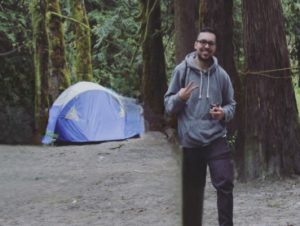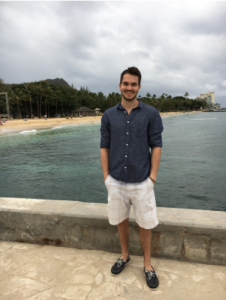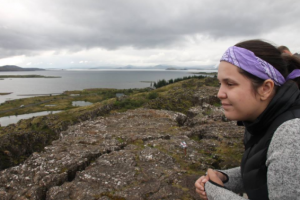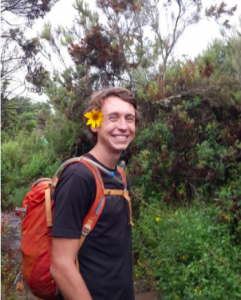HELLO! WE ARE GROUP #1!
Positive people producing fresh insight and growing with the difficulties that may face us rain or shine
Food Production Team Members Introduction

Hi, my name is Ebod Shojaei. I am a fourth-year Applied Biology student majoring in Food and Environment. My personal interests typically involve engaging in physical activities, such as weightlifting and bouldering. Through my progression of physical activity, I have become more cognizant of what I eat as well. You sustain yourself through looking after yourself. This is something that I have also come to see in our world since enrolling in Land and Food Systems. We must look after our world in order to sustain it.
 Hi, my name is Jessica Chan. I am pursuing my third-year as a Nutritional Science student, in hopes of taking on a double major in Nutritional Science and Food Science. My interests involve hiking and photography. Growing up, my father worked at food companies such as Canada Bread, Saputo, and Diaryland; at a young age, I began attributing food with love. My father grew up in Fiji and my mother in China, both facing different food insecurity issues. In the future, I look forward to contributing to our community, finding the most efficient ways to optimize our limited resources.
Hi, my name is Jessica Chan. I am pursuing my third-year as a Nutritional Science student, in hopes of taking on a double major in Nutritional Science and Food Science. My interests involve hiking and photography. Growing up, my father worked at food companies such as Canada Bread, Saputo, and Diaryland; at a young age, I began attributing food with love. My father grew up in Fiji and my mother in China, both facing different food insecurity issues. In the future, I look forward to contributing to our community, finding the most efficient ways to optimize our limited resources.

Hi, my name is Kyle Morton. I am a third-year student majoring in Food, Nutrition, and Health. My interests involve working out and sports, more specifically soccer and hockey, however, I do enjoy all sports. Along with this, I love learning about how different foods and lifestyles affect the body and health.

Hi, my name is Lixin Zhang. I am a second-year student majoring in Food,Nutrition, and Health. My interests involve studying and reading about Navy Seals’ war stories. I am fascinated by the obstacles Navy Seals’ have had to overcome, especially when faced with dwindling resources and supplies during war. Besides that, I enjoy working out and being active. In the future, I hope to help mitigate hunger and hope to inspire people to take more ownership towards their own health.

Hello, my name is Mariana Berlanga. I am currently in my third year of food and environment major. My personal interest includes activities which are creative and hands-on such as sewing, knitting, and gardening. Though my studies I have gained a greater interest in food policy focusing on sustainable food systems and food justice.

Hello, my name is Sam Puddicombe. I am a fourth-year Global Recourse System student. Through my undergrad, I have explored my interests both in Food, Resource Economic and Agroecology. I am an avid fan of the natural and agricultural world. Spending so much time in these environments inherently makes me care for their sustainability. I wish to be apart of creating a healthy relationship between people and the natural environment they depend upon.
Goals
- Developing skills for effective teamwork , which will contribute to efficiently developing effective strategies for problems that can hopefully create a better world.
- Learning, articulating, and applying knowledge in real life situations, which provides the opportunity of practicing critical thinking, management, and effective communication skills.
- Obtaining valuable knowledge that can be applied to make some meaningful impact in the community.
- Learning to communicate and work in union with a group of peers to accomplish a mutual goal.
- To gain experience in working through uncertainty and uncomfortable situations
- To learn about Vancouver’s food system, such as food policy and urban resiliency.
- Learning how to relay knowledge to other interdisciplinaries and stakeholders such as advocating for resiliency, and addressing the pros and cons of Vancouver’s food system.
- To gain experience working with food councils and city municipalities
- Learning how to contribute to Vancouver’s municipal resiliency in the long-term.
- Exploring community food systems and its management as well as how policies influence food production in Vancouver.
Project Objectives and Community Organization
The project objectives are focused on the baseline research of existing urban agriculture and food production assets. In order to improve the resilience of Vancouver’s urban food system, opportunities and barriers must be identified thoroughly. Furthermore, it is important to articulate how a municipality engages with public food assets and how it can contribute to promoting resiliency for a healthy and sustainable food system.
Likewise, the breadth of urban food production assets is a key that must be demonstrated by understanding the relations between food production and municipal resiliency. This will be important towards communicating the results of our municipal food-related case study effectively to Vancouver’s municipal stakeholders.
The Power of Why
This project provides an opportunity of developing professional research skills and understanding the structure and function of our community food production system, which helps us developing a contextual understanding that will be necessary for planning out a proper food resiliency strategy. One of the main reason we choose for this project is to understand varied levels of our community food production, and to get practical knowledge of working with our community partners on how to solve the inadequacies or concerns.
We are interested in how we can preserve sustainability in our city in the event of some catastrophe. The possibility of a disaster occurring in Vancouver–it was caused by nature or by man–is very real. Essentially, we believe that the food system’s main objective is to produce as much food as possible that is transported as efficiently as possible in order to feed as much people as possible. The design and management of food production systems greatly influence our economy. We believe that localizing production can be a key aspect of creating a more sustainable food system.
The self sufficiency of growing our own food adds resilience and independence to our city. Although this idea is logical, we don’t often see studies quantifying what a municipality’s current production capacity is, how fragile it is, nor how it would be utilized in times of distress. This project allows us to ask the questions around to what degree localized production contributes to the food system resilience of Vancouver. Sustainability is often a loosely used term and it is important to observe how our actions truly contributes to it.
This includes the resilience of the food system in the event of a crisis. The supply of food in a city is vital in the event of a crisis, which is why resilience is an interesting and very relevant topic. This is exciting because of the opportunity of conducting research in the community and presenting the results to food councils.
First Impressions: Our Core Value of Being the Change
Ernesto Sirolli (2012) made great points about getting involved in our community’s food system. Likewise, this community project will definitely be a great chance to connect the dots between learning and knowing, and to learn about how the community’s food system works. However, it is important to realize that if people don’t want to be helped, leave them alone, and that the first principle of aid is respect (Sirolli, 2012). This serves as a reminder of the importance of developing a rational and critical thinking skill; it is crucial to pay attention to the message that others provide in order to understand their main focus and values.
On asset-based community development, there are two major points to carry with us to embark on the resiliency of food production. Firstly, Sirolli (2012) states that if you want to help someone then “shut up and listen”. In other words, in order for us to be effectively help with the development of a community, we must refrain from imposing our values and what we believe to be “right” for them. This is especially so given the fact that it is the community’s resources that are used. Instead, we should consider listening to what the community needs and how they want to manage their resources. Only then can our efforts have the most positive outcome.
Secondly, Sirolli (2012) points out that the most successful companies were not built by one, but by many. This stresses the importance of working as a unit with both our group and the community as well as acknowledging that each person brings a different perspective and certain expertise.
Reference
Sirolli, E. [TED]. (2012, November 27). Want to help someone? Shut up and listen! [Video file]. Retrieved from https://youtu.be/chXsLtHqfdM
